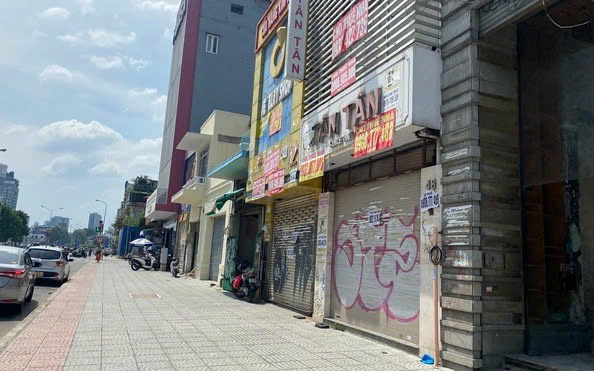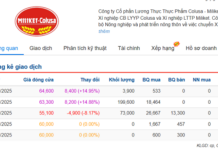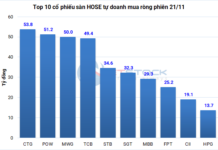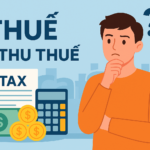Rental Properties and Tax Obligations: Understanding Your Responsibilities
While it is expected that individuals comply with their tax obligations, reality shows that not everyone declares their taxes honestly and accurately. Some even blatantly ignore or find ways to circumvent the system.
Renting Out Properties Without Proper Tax Declarations
Mr. Thanh, a resident of Xuan Hoa Ward in Ho Chi Minh City, owns two apartment units and rents them out for VND 12 million each per month. His annual income from these rentals amounts to nearly VND 290 million, almost three times the tax-exempt threshold. However, when asked about tax declarations, he bluntly stated, “If you don’t declare, you don’t have to pay taxes. It’s that simple.”
A similar case can be observed with Ms. Thuy from Nhon Trach, Dong Nai. She owns a house in Ho Chi Minh City, renting it out for VND 20 million per month, resulting in an annual income of over VND 200 million. Despite this substantial revenue, she has not made any tax declarations.
“I’m retired, and the rental income is my only source of monthly expenses, so I never thought about paying taxes,” she explained.
Our investigation revealed that many individuals believe that renting out properties does not constitute “business” and, therefore, should not be subject to taxation.
Mr. Hoang, a resident of An Lac Ward in Ho Chi Minh City, owns a row of rooms rented out to factory workers, earning him an average of over VND 12 million per month. He shared, “Some months we have fewer tenants, and some months we have more. I don’t know how to declare this type of income, so I just don’t bother.”
According to Clause 1, Article 9 of Circular No. 40/2021/TT-BTC, individuals renting out their properties have three options for declaring personal income tax: declaring according to each payment period, declaring annually, or declaring multiple contracts if they fall under the same tax authority. Those with an annual income of VND 100 million or less are exempt from paying taxes.

Renting out houses and spaces has become a significant source of income for many people.
However, for those whose income exceeds the threshold, there is an obligation to declare and pay taxes. The current tax rate is 10% of the total income, comprising 5% personal income tax and 5% value-added tax.
Despite this, many individuals deliberately underdeclare their income or choose to remain silent, hoping to avoid detection by tax authorities.
Penalties and Consequences for Not Declaring Rental Income
In light of these situations, the Tax Department has sent official dispatches to the People’s Committees of provinces and centrally-run cities, requesting their coordination in strengthening the management of tax obligations for households and individuals renting out houses and offices.
Mr. Nguyen Tien Dung, Deputy Director of Ho Chi Minh City Tax Department, shared that they have instructed tax offices to coordinate with ward and commune authorities, as well as apartment management boards and local police, to inspect and supervise rental activities in the area. Information from tenants’ temporary residence declarations is also utilized to verify actual income. “When we discover tax evasion cases, we work with local authorities to determine the correct income, impose fines, and collect the due taxes. Serious violations are referred to the police,” Mr. Dung added.
According to Decree No. 125/2020/ND-CP, those who declare less and, consequently, pay less tax will be fined 20% of the underpaid amount. For non-declaration, the penalty ranges from VND 2 million to VND 25 million, depending on the duration and severity of the violation. If the amount of tax evasion is substantial and there are signs of criminality, the violator may face criminal liability.
A tax official shared that collecting taxes from rental activities is not just a legal obligation but also contributes to ensuring social equity. “It’s unfair that salaried employees have their taxes deducted from their paychecks, while landlords earning hundreds of millions go untaxed,” the official said.
In reality, many landlords fail to declare their rental income, either because they believe tax authorities won’t notice or because they have never been inspected. However, with the current tightening of management, the days of carefree renting without paying taxes may soon come to an end.
Tax authorities advise landlords to familiarize themselves with the regulations and proactively declare their income accurately and on time. Failure to do so may result in not just paying taxes but also incurring penalties and late payment fees, which could exceed the initial tax liability.
What Are the Consequences of Renting Out a Property Without Paying Taxes?
“Renting out properties, whether it’s residential, commercial, or even industrial spaces, has become a significant source of income for many. The practice of leasing is a lucrative business, and those who engage in it are reaping the financial benefits.”
“Arrest of Durian Company’s Director”
Based on the evidence gathered, the Hanoi City Police’s Security Investigation Agency has decided to prosecute and arrest Stephen Ward Kim for tax evasion.











































